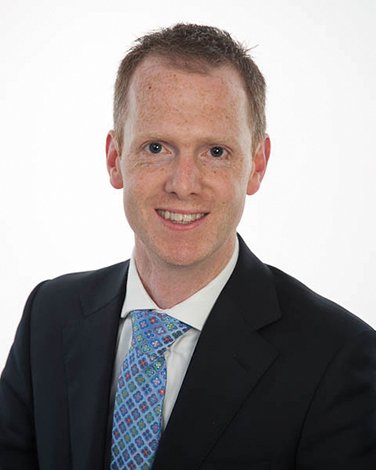Threatened fee cuts to community pharmacists will not now proceed, but it remains unclear when and how their role will be expanded in the future. Catherine Reilly reports
Earlier this month, the Irish Pharmacy Union (IPU) welcomed the “sensible decision” by Minister for Health Simon Harris not to proceed with proposed “savage cuts in fees” to pharmacies and, instead, to recommit to early talks on a new pharmacy contract and investment in pharmacy services.
When the proposed cuts were announced in October, Ireland’s 2,300 community pharmacists were left “deeply shocked and concerned”, according to the IPU.
Any funding cuts would “go completely against” the Government’s Sláintecare strategy, which aims to keep health services in the local community, it added.
With this controversy now seemingly put to bed, pharmacists can return their attention to the development of a new contract that will facilitate an expansion of healthcare services within pharmacies.
“The contract we have for pharmacies has been in place since 1996,” IPU Secretary General Mr Darragh O’Loughlin told the Medical Independent (MI) in late November. “The Internet didn’t even exist when this contract was signed. It was a modern contract back then, but it is completely outdated now and not fit-for-purpose anymore and pharmacists and the public need a new pharmacy contract that reflects how pharmacy should be practised in the 21st Century.”

Minor ailments
What should 21st Century pharmacy look like? A document published in 2016 by the pharmacists’ regulator, the Pharmaceutical Society of Ireland (PSI), provided a comprehensive overview of the healthcare services that may become available in pharmacies in the future (see panel). One such service is a minor ailments scheme.
A feasibility trial into a minor ailments service in Irish pharmacies was conducted in 2016. It was piloted across 19 pharmacies in four towns (Kells, Roscommon, Macroom and Edenderry) for three months.
The medical conditions included in the trial were dry eye, dry skin, scabies, threadworms and vaginal thrush. In a response to a parliamentary question in November 2018, Minister Harris said the study successfully tested operational and administrative procedures, but the patient take-up was small (121 consultations) and no meaningful clinical or outcome data emerged.
More extensive trialling would be required if this was to be progressed, he said.
The IMO has expressed concern over a minor ailments scheme in pharmacies and about some other potential extensions to pharmacists’ scope of practice. It has also frequently pointed to the importance of a clear distinction between the prescriber and dispenser of medicines.
Dr Denis McCauley, Chair of the IMO GP committee, said there is a substantial training requirement in order to become skilled in differentiating minor from non-minor ailments.

“You would almost have to do a casualty job for six months to be able to identify a minor ailment as opposed to a non-minor ailment. You can’t just become a minor ailment ‘superstar’ overnight; it would take quite a lot of training to actually do it. Now, that is not being facetious or arrogant. Invariably, you will find they will still be referred to the doctor,” he told MI.
According to Mr O’Loughlin of the IPU, such schemes have been operating well in other countries.
“And the pharmacists all have protocols they follow in order to ensure they have correctly identified what the ailment is, and that they are providing the correct treatment. This is happening in Scotland and it’s happening in Wales,” stated the IPU Secretary General.
“In Scotland, it was originally only for certain citizens, the ones who had eligibility for free prescriptions and the elderly, and now they are expanding it out to the whole population because it has been a success. They have found that symptom resolution rates, in other words appropriate and successful treatment rates, for minor ailments in pharmacies can be up in the nineties in terms of percentage.
“The British Journal of General Practice found the pharmacies were treating them as successfully as GPs but that it was done at a lower cost to the health system. So while I respect the view of the IMO and we don’t claim to be doctors — no pharmacist out there is pretending to be a doctor. I am a pharmacist, I want to be a pharmacist, but I want to practise pharmacy to the top of the scope of pharmacy practice.”
A minor ailments scheme is essentially operating for private patients, according to Mr O’Loughlin. He said people without a medical card often call into a community pharmacist with symptoms and receive an over-the-counter (OTC) medicine as treatment.
“They don’t go to a doctor. So if a private patient has indigestion, or a headache, or constipation, nausea, hay fever, skin allergies, anything like that, they will invariably go to a pharmacy first. If it looks like it requires a doctor, the pharmacist will say ‘you actually need to see your GP about that’.”
In contrast, public patients often present to their GP with a minor ailment as they need a prescription to avail of the OTC medication free of charge.
“We are just saying that public patients or medical card-holders should have the same access level to treatment as private patients have. In one year in Ireland, we have almost a million medical card prescriptions written, where there is just medicine on it and the medicine could have been bought without a prescription.
“So that suggests those are minor ailments which, if you were a private patient, you probably would have just gone to the pharmacy and got your treatment there and then. I can see what the IMO is saying but I don’t agree with their suggestion that there is some risk inherent in pharmacists providing treatments to medical card-holders who have minor ailments because those risks have not manifested in pharmacists prescribing non-prescription medicines to private patients.”
‘Fragmentation of care’
Dr McCauley told MI objections within his profession were not about “a ‘greedy GP’ keeping everything to himself”, as some might perceive it.
He said GPs were concerned about “fragmentation of care, cherry-picking; various things like that”.
Dr McCauley gave the example of pharmacists potentially being allowed to provide the oral contraceptive pill without a doctor’s prescription. He said pharmacists would not be in a position to give a full range of contraceptive options, principally long-acting reversible contraceptives (LARCS), which are recommended for many women in terms of health and effectiveness.
“So giving a pharmacist one function, or one ability to do one thing — guess what happens; that pharmacist will only do that thing. Whereas if a GP has five options, they will choose what is best for the patients.”
Again, Mr O’Loughlin viewed matters differently.
“The pharmacist is perfectly capable of talking through all the options with a woman looking for contraception, telling her about LARCs in addition to the pill and other methods, and explaining the benefits,” he said.
“And then a woman will decide, ‘I want to get the LARC as that sounds like it will suit me’, and we will refer them to a GP who does it because not all GPs, for example, fit the coil or fit Mirenas. So you’d refer them to a doctor who does that.
“We already know how to refer people to a doctor to provide a service to them. But last year in Ireland, there were two million packs of [contraceptive] pills dispensed in pharmacies on prescription; those prescriptions were written by doctors. So doctors are prescribing that level of oral contraceptive pill out there, to women who choose to use that method of contraception.
“What we are talking about is giving women the choice, so they wouldn’t be obliged to go to a pharmacy; they could still go to a doctor. We are not going to oblige them to take the pill; they can still choose to have a LARC. But women who choose to go to a pharmacy to get the pill should be able to get it.
“They are already doing this in New Zealand, many states across the US, and parts of Canada. They have actually done a study in Oregon state, which was the first US state to introduce pharmacists’ prescribing of the pill, and they were able to quantify the number of unwanted pregnancies that had been avoided and the consequent financial saving to the health system and the social care system as a result of those pregnancies not happening.”
E-health
On a broader note, Ireland’s poor e-health infrastructure remains a barrier to extending pharmacists’ practice, according to Mr O’Loughlin.
“In Ireland, we don’t have a proper e-health infrastructure, we don’t have online health records, GPs can’t see records in a hospital, the hospital can’t see GP records, nobody can see pharmacy records, and so on…
“So look at Canada; patients are diagnosed by their physician there with high blood pressure — hypertension — the physician does out the care plan, these are the medications you are going to use, the pharmacist is going to monitor your blood pressure, the pharmacist is going to adjust the dose of these medicines up or down as appropriate, and put that information onto your electronic health record and I will see it here.
“And if your blood pressure is not controlled, you are going to be referred back here and we’re going to take control of it. But for the majority of the population for whom the medication the doctor prescribes actually works, the pharmacist is doing the monitoring, and can even extend the prescription out if it is working and refer people back to the doctor where the medicine isn’t working.
“Whereas today in Ireland… private patients get a six-month prescription, they go away and take the medicine and nobody is checking whether it is working or not, and nobody is checking they are getting the right dose, and if they have achieved their target blood pressure. And there is international evidence that shows that blood pressure control in Ireland, particularly for male patients, is one of the poorest in the countries they looked at, whereas Canada is one of the best. That saves lives in Canada.”
There would be additional training requirements for pharmacists if their role developed, as had occurred when the national influenza vaccination programme commenced in pharmacies. “There are some services where if they were to be rolled-out in pharmacy, they would require additional training, there is no doubt about that,” said Mr O’Loughlin.
Both Dr McCauley and Mr O’Loughlin emphasise that the relationship between GPs and pharmacists on-the-ground is positive. But clearly, the two unions strongly disagree on how the relationship will develop.
Dr McCauley welcomed the inclusion in the recent agreement between the IMO and Department of a pharmacist-supported medicines usage review process in primary care. It will aim to support GPs in safe prescribing and reduce high-risk prescribing, arising due to the age of the patient, and potential comorbidities and co-prescription. This will be introduced and targeted at medical card/GP visit card patients aged over 75 years resident in the community.
The pharmacists, employed by the HSE and based regionally, will be able to visit GP practices and make suggestions on safer prescription.
It is these traditional areas of practice where the IMO believes the profession should focus their efforts.
Mr O’Loughlin considers it possible there is “a fear in one profession that if a new service is provided by a different profession, and funding goes into it, that they will somehow be at a loss”.
“GPs should be paid for what they do and should be paid properly,” Mr O’Loughlin emphasised, “but they should be given the level of support that allows them to spend meaningful amounts of time with patients who need meaningful amounts of time and not be rushed having to get through a waiting room of people who could have been dealt with in a pharmacy.”
ICGP
Meanwhile, the ICGP issued a statement to MI conveying a much more open position on expanding pharmacists’ role, when compared with the IMO. The College will have a particular insight into developments in pharmacy through CEO Mr Fintan Foy, who is currently serving his second term on the Council of the PSI.
In regard to a minor ailments scheme, an ICGP spokesperson said community pharmacists already treat several minor ailments “such as minor coughs and respiratory infections and some skin infections, amongst other ailments, and this of course helps to reduce pressure on the hospital emergency services and on other parts of the health service.
“A community pharmacist-provided minor ailments scheme would require clear guidelines, protocols and governance structures, as well as training of pharmacy support staff.”
As to the potential future introduction of independent pharmacist prescribers, as well as pharmacist supplementary prescribing as part of shared care with a GP, the spokesperson said: “Pharmacists and GPs already enjoy a close working relationship and a good level of trust and mutual respect has been established through years of working together. A highly-trained pharmacist prescriber under the governance and supervision of the managing GP would be an additional valuable resource in the community.
“If care is shared with GPs and is guided and directed by the GP, then a pharmacist prescriber would add to the community support team for patients. Pharmacist prescribers would require extra training and thorough and comprehensive guidelines and protocols in order to ensure patient safety and wellbeing.”
On whether the College could have any future role in the training of community pharmacists, the spokesperson said pharmacists and GPs have their own separate education and professional competence schemes.
“However, the ICGP would be very happy to meet with the PSI and the Irish Institute of Pharmacy to discuss areas of mutual interest in the areas of education and service provision.”
The Department of Health is clear that it sees the role of pharmacists in Irish healthcare as evolving. But it is providing limited detail on what this new model may look like.
“The Minister will be seeking to put in place a contractual agreement that is fit-for-purpose in a healthcare system that is increasingly seeking to tilt the balance of care towards a strengthened primary care system,” according to a Department spokesperson.
“The intention would be that the vision and approach which underpins Sláintecare would be mapped-out for community pharmacy; a primary care model, integrated with other health policies as part of a multidisciplinary approach to healthcare. The way forward will require the expansion of both the scope of practice and the range of public services provided in community pharmacy.
“An overriding principle in that proposed engagement with pharmacy representatives has to be value for money, ensuring that any new service delivery actually improves health outcomes and benefits for patients. All proposals, including treatments for minor ailments, will be for discussion under the proposed contract reform.”













Leave a Reply
You must be logged in to post a comment.